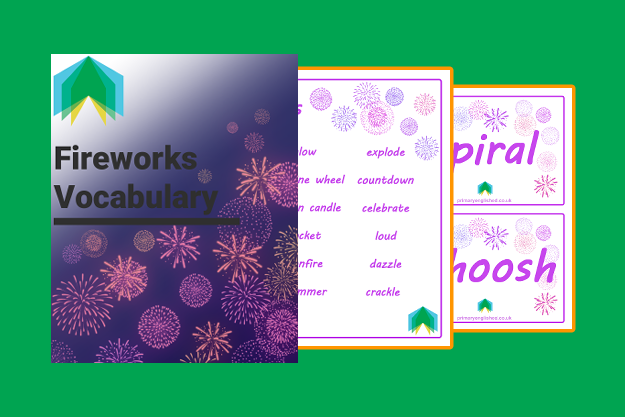Quick Tips for Spelling: Tricky Spellings
The national curriculum asks that children learn to spell using phonemic, morphological and etymological approaches. At Primary English we wholeheartedly agree with this but there are times when a quick tip or a sneaky trick can help a child unlock their personal tricky spellings. We’ve collated some of the tricks and tips we know in the hope they can help the children in your class.
Acrostics
Acrostics are particularly popular approaches for remembering spellings with common acrostics including:
Big Elephants Can Always Understand Small Elephants for because
Purple Elephants Offer Pink Lollies Everywhere for people
O, U, Lucky, Duck for could, would and should.
Songs, Rhymes and Ditties
Knowing whether it’s double c or double s in necessary stumps many children (and adults). We’ve encountered several ditties to help with this problem such as:
one collar and two sleeves
one coffee and two sugars and one
one coat and two socks.
And if you’ve ever struggled to spell onomatopoeia, try splitting it as so:
o-n-o-m-a-t-o / p-o-e-i-a
Then sing the letters to the tune of Old MacDonald. It’s a game-changer, believe me – I’m writing from experience!
There are also ditties and well-known sayings to support spelling choices such as:
i before e except after c; that is the usual rule
i to the end will be your friend
there is a rat in sep-a-rat-e.
And there are ditties for some confusing homophones, such as:
· There’s an e for envelopes in stationery (for choosing between stationary and stationery)
· Use RAVEN: Remember: Affect Verb; Effect Noun (when unsure about affect or effect)
· Remember: ice is a noun. There’s ice in practice; practice is a noun (when choosing between practice and practise).
Chunking (syllabification)
Another mnemonic method that can be applied to spelling is to chunk the letters into syllables.
Mischievous is a troublesome word that in addition to being misspelt, is frequently mispronounced too (with an additional i making an -ious ending). Chunking it into its syllables helps with this issue:
· mis-chiev-ous
And again, because of how we speak, parliament is often written without the i so deliberately chunking it as it is written helps avoid this common spelling error.
· par-li-a-ment
Mispronunciation
While it is our pronunciation that creates the spelling errors referred to above, sometimes deliberately mispronouncing words can help with their spelling. Common examples of this approach are:
Feb – ru-ary
Wed-nes-day
Def – i– nate
Words inside words
Spotting other words hiding inside longer words can be a very helpful approach to spelling.
Together = To + get + her
Beautiful = Be + a + utiful
I’m not sure what a utiful is, but displaying this in my classroom certainly helped my children get it right!
Other words that cause problems, but that have smaller words inside them include therein and believe. And if you’re looking for a word crammed with smaller words, whether you or your children find it tricky or not, take a look at discovery (see our post Playing With Words).
So, teaching the rules of spelling is important but giving children (and ourselves) a few tricks and tips can help iron out some of the most common spelling errors.






